
Algae, a kind of organism commonly found on the water surface, is a highly efficient carbon absorbent, which can capture more carbon dioxide (CO2) than trees. Alcarbo Technologies Limited (Alcarbo) is a biotechnology company incubated by the Seed Fund and Angel Fund of City University of Hong Kong (CityUHK)’s HK Tech 300. It cultivates microalgae using genetic mutation technology and uses its self-developed “photobioreactor system” (PBRs) and nanobubble technology to enhance the carbon capture capacity of microalgae. This allows microalgae to capture about 68 times the amount of CO2 of an equivalent area of ??forest, making them “Super Carbon Capture” species.
This start-up company was selected as one of the top 30 start-ups at “JUMPSTARTER 2023”, presented by the Alibaba Entrepreneurs Fund, and was awarded the “Environmental Impact Award” at the Global Pitch Competition at the same tech event. Through HK Tech 300, it was also supported by the Incubation Programme of Hong Kong Science and Technology Parks Corporation. The company is applying for carbon credit certification on the international carbon transaction platform for the related technologies, with the aim of promoting carbon reduction worldwide through carbon credit transactions.
Alcarbo was founded in 2022 by Mr Nelson Ng Pok-him and Mr Rex Cheung Yan-chu, both PhD students in CityUHK’s Department of Infectious Diseases and Public Health, and Mr Bill Chan Kwan-wai, Research Assistant in the same department. Nelson has been passionate about the ocean since he was a little boy. He started a seafood trade business with his older family members and came into contact with companies involved in fisheries, algae farms and microbials. He received a bachelor’s degree in aquaculture in Taiwan and a master’s degree in aquatic pathology in Scotland and returned to Hong Kong after graduation. He joined CityUHK and studied in a PhD degree programme in the Department of Infectious Diseases and Public Health while working as a research assistant carrying out scientific research on microalgae.
Rex and Bill studied molecular biology and microbiology. One day, the three young men chatted in the laboratory and wondered, “Isn't it the time to make use of technology to help achieve carbon reduction in the face of global warming?” This was how the idea of establishing Alcarbo came up, and they gradually realised it with the support of HK Tech 300.
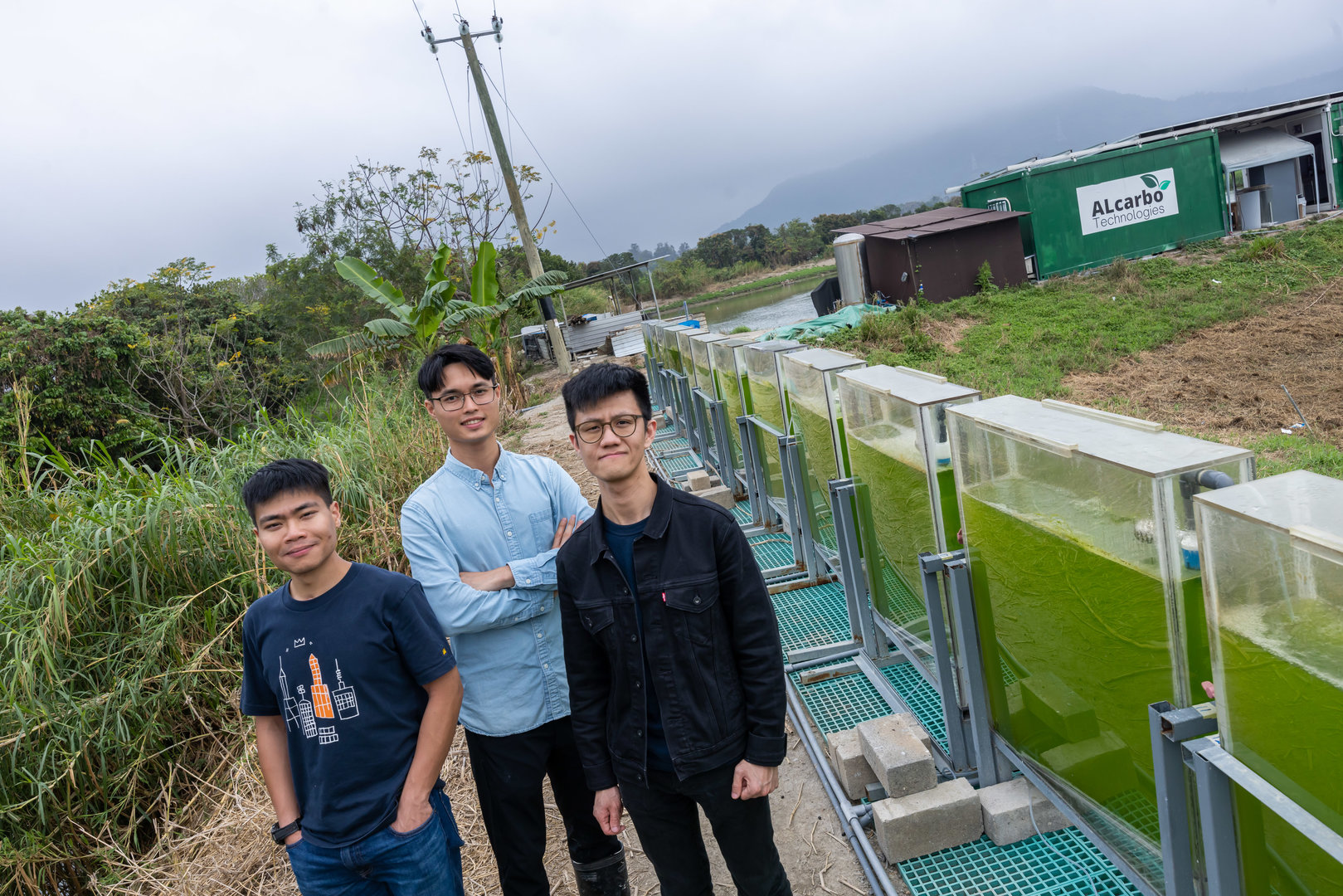
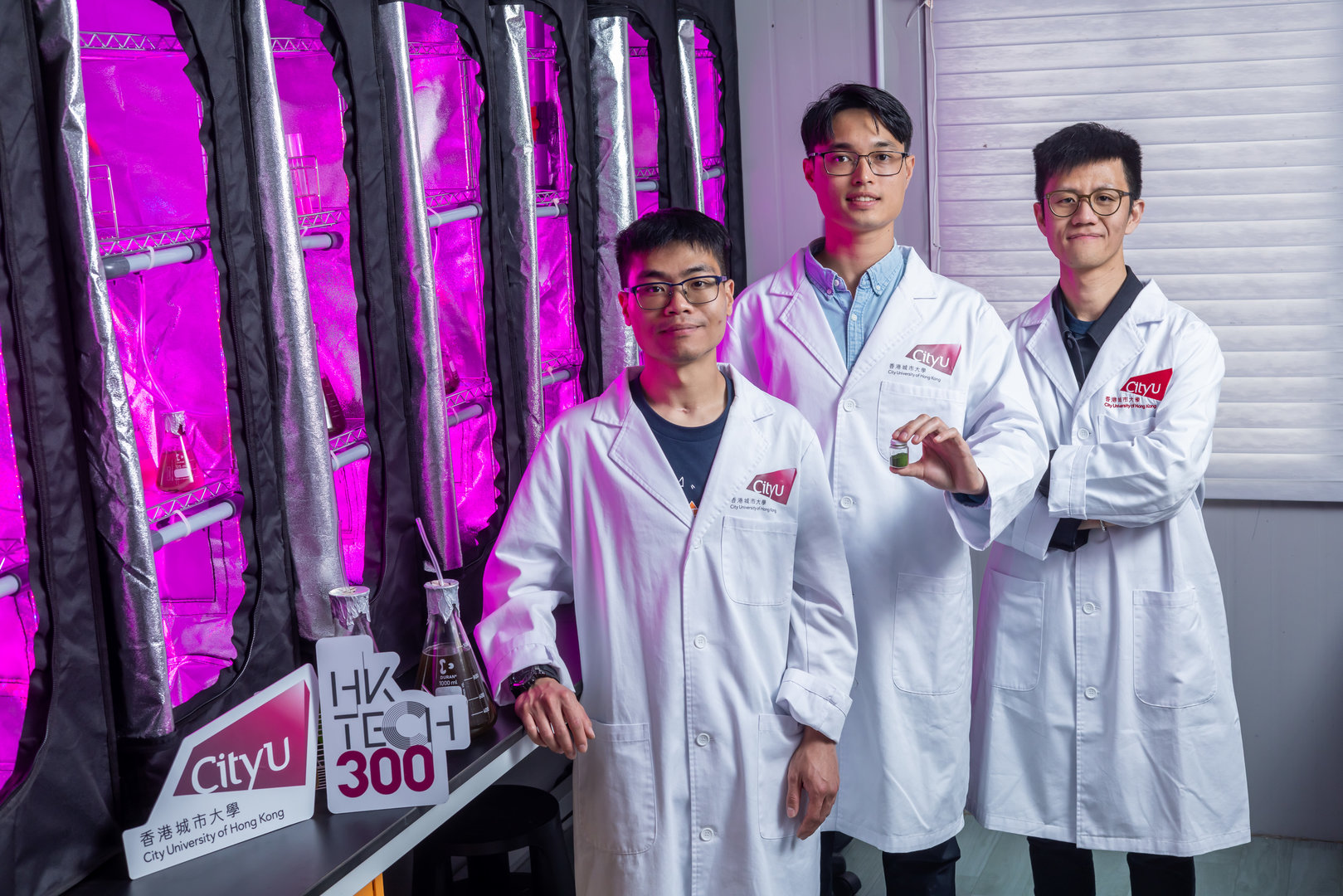
The smaller, the stronger
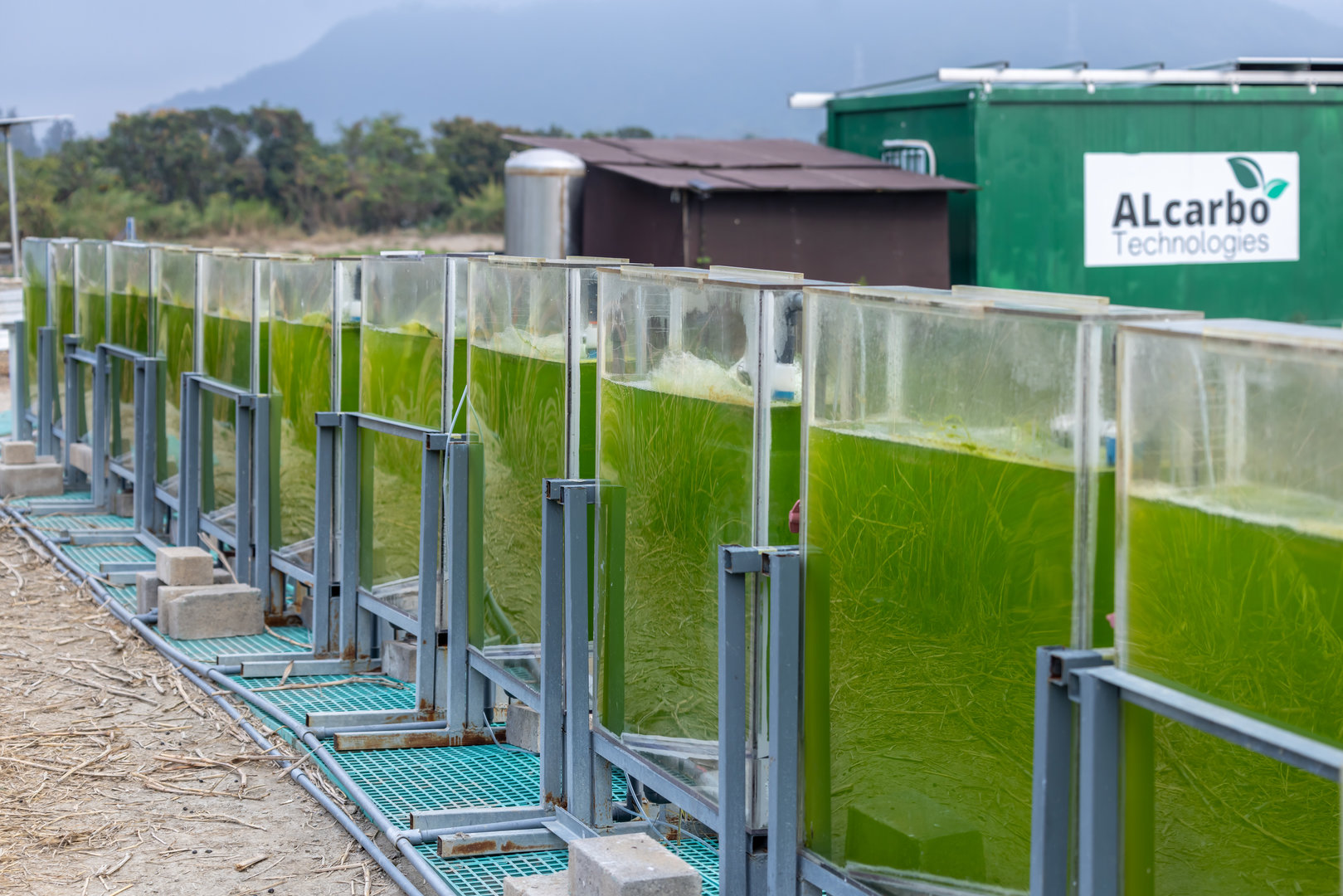
Like terrestrial plants, microalgae undergo photosynthesis when they grow, capturing CO2 and converting it into oxygen. Microalgae are small. “However, one should not underestimate the capability of tiny organisms,” said Nelson. He pointed out that theoretically, microalgae can capture nearly 400 times more CO2 than trees in the same area. “But microalgae farming is not easy. We have to select specific strains and cultivate them in a scientific way,” he said.
After in-depth research, Nelson’s team selected some algae strains with better carbon-fixing capabilities from 75,000 species of planktonic algae around the world. The team used genetic mutation technology to change the characteristics of the microalgae so that they can adapt to the farming environment in different regions.
Developing reactors to improve the microalgae carbon-capture rate
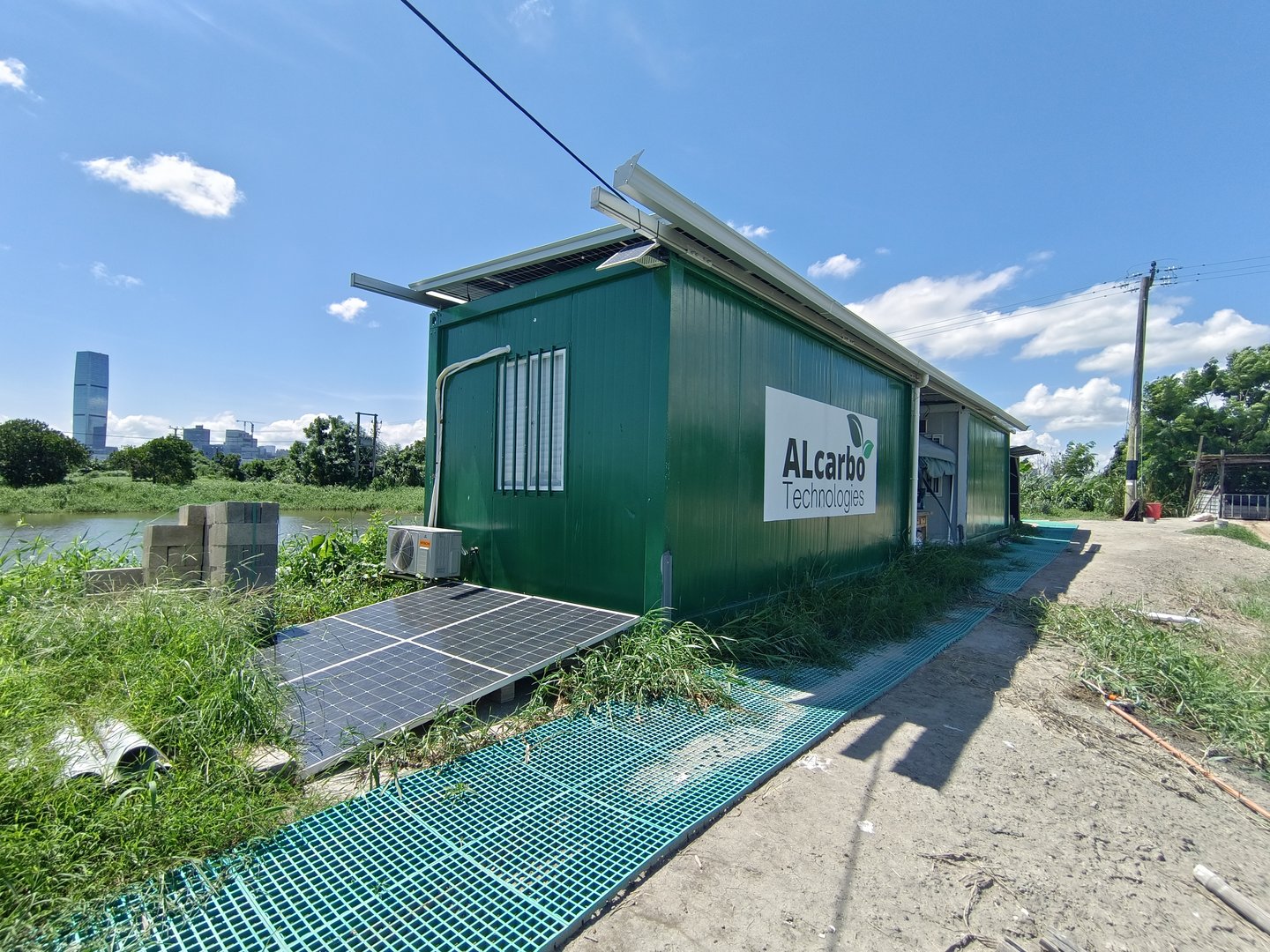
The team also developed a PBR and applied nanobubble technology to it to enhance the diffusion of CO2 and lengthen the time that CO2 stays in water. In this way, the amount of CO2 captured by the microalgae is increased by 12 times, and there is a 15% increase in carbon-capture efficiency. Electricity consumption of PBRs is also reduced, further supporting the goal of carbon neutrality.
External support can greatly enhance algae’s efficacy in converting CO2 into oxygen. This is similar to the successful transformation of an innovative idea or a research project into practical applications with the set-up of a tech start-up, which also often requires an external boost. During Alcarbo’s early stages, HK Tech 300, an innovation and entrepreneurship programme from CityUHK, provided comprehensive support, offering a Seed Fund of HK$100,000 and an Angel Fund of HK$1 million, successively.
HK Tech 300 supports the start-up journey
“We had only a concept at the beginning, so it was difficult to get investors interested in our project. HK Tech 300 not only provided us with funding so that we could create a prototype, but also offered entrepreneurial mentors and an extensive industry network to provide us with essential business skills and equip us with an understanding of the business sector and market needs,” Nelson recalled. “With all this support, our team did not need to work alone, and our vision moved beyond the laboratory.”
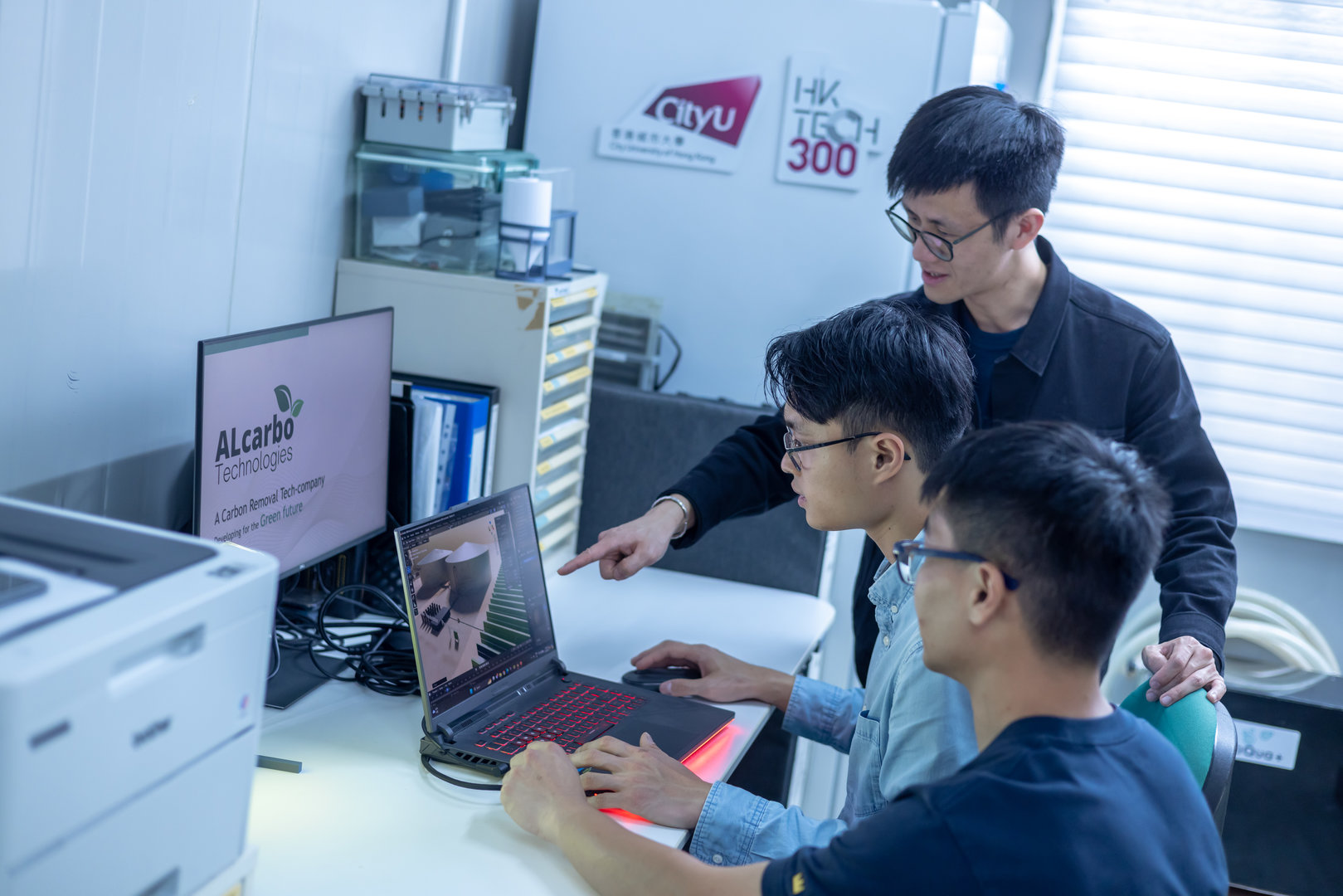
Alcarbo established a microalgae farm in Yuen Long for further research and outcome transformation. This allows it to demonstrate its business operation model to potential corporate customers. Nelson said that the microalgae farm currently covers an area of ??about 150 square metres and has 12 microalgae reactors. The amount of CO2 captured by each reactor of about one square metre is equivalent to the level of carbon captured by a forest of about 68 square metres. The company also produces algae raw materials for use in biofuels by scientific research companies and universities, as well as microorganisms needed by the aquaculture industry.
Alcarbo is committed to seeking sustainable green solutions. Its carbon capture rate has been certified by renowned testing organisation CMA Testing, and it is applying for the “Gold Standard”, a carbon credit certification from an independent international organisation. It plans to expand its business into Southeast Asia and carry out global “carbon credit” transactions, so that companies that need to reduce carbon and deal with carbon emissions can purchase the carbon credit. Alcarbo hopes to become a carbon-reduction partner of many companies around the world to promote sustainable development together and achieve carbon neutrality.
(March 2024)